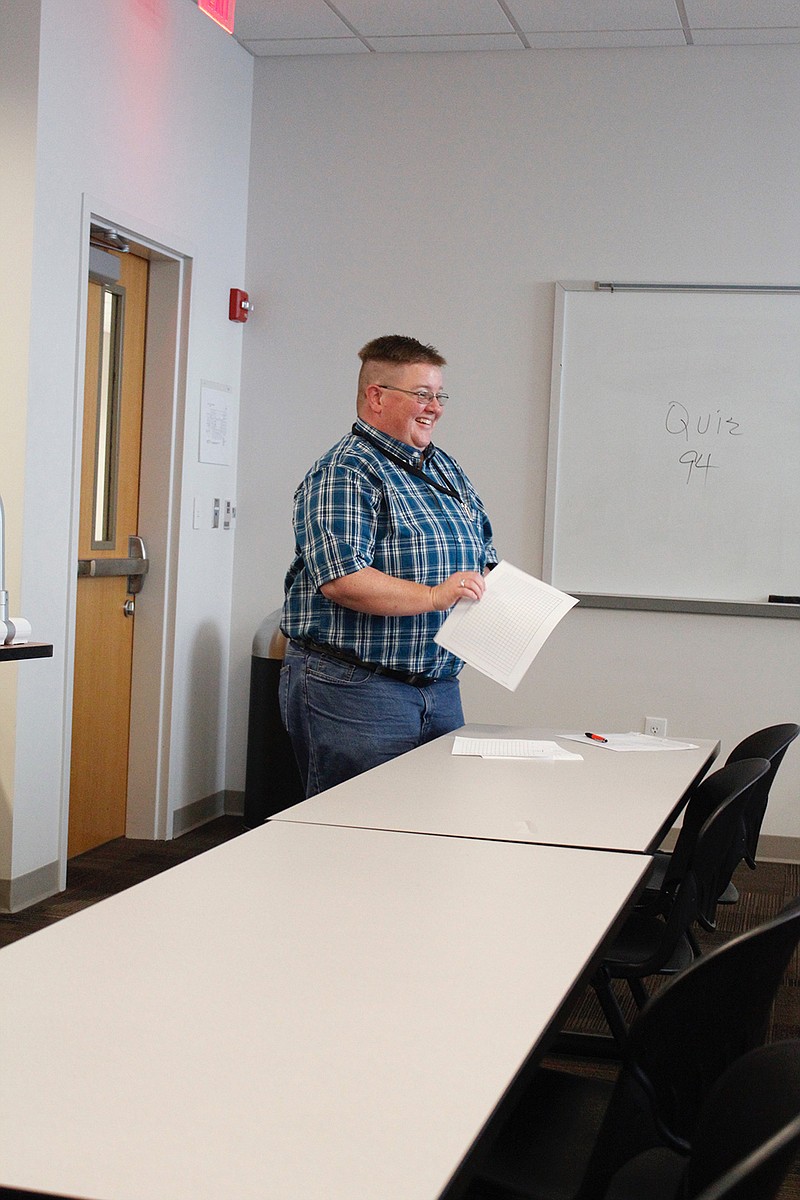Many people maintain their lawns by mowing and weeding, but some use that green space to put food on the table.
Aarron Corbin, president of the Bowie County Master Gardeners gave a presentation Monday on edible landscapes and outlined how to turn the yard into a garden.
He said people should make a plan and identify the spaces they have in their yard and plant accordingly.
"Trees are part of your edible landscape," Corbin said. "They're providing shade for your house, lowering your electric bill and everything else. It's providing a habitat for wildlife and if you so choose, it will provide food for you."
He added that many large trees produce edible nuts, including chestnut, hickory, oak and hazelnut. These can be planted in the yard, but citrus trees won't grow in this area due to the cold.
"Put the tree in a large pot and put it on a wheeled stand," he said. "That way you can move them inside when it gets cold."
He also gave a list of fruit bearing trees that grow well in our area, which are pawpaw, apple, fig, nectarine, pear, plum, peach and cherry.
Fruit-bearing bushes and shrubs can also be planted in the yard and be eaten. These include elderberry, blackberry, blueberry, raspberry and red-lake currants.
Corbin also said herbs are easy to incorporate into the landscape.
"There are a lot of herbs you can plant in your yard," he said. "There are many types of oregano and rosemary." He added that mint, sage, thyme and rosemary are also easy to grow.
Corbin went over best management practices, temperature and mulching plants for the winter.
"Pine needles will give you the best frost insulation," he said.
Edible flowers were also detailed in the presentation and Corbin gave a list of those.
Begonias, calendulas, marigolds, day lilies, carnations, dandelions, chrysanthemums, honeysuckle, impatiens, tulips and hibiscus are examples of common edible flowers.
He gave the following guidelines when considering eating flowers.
Do:
- Eat flowers only when you're positive they're edible
- If pesticides are necessary, use products that are edible crop safe
- Wash all flowers thoroughly before eating them
- Remove pistils and stamens before eating
- If you have allergies, introduce edible flowers gradually, as they may aggravate your allergies
Don't:
- Eat flowers from florists, nurseries or garden centers
- Harvest flowers growing on the side of the road
He said people should identify the flower exactly and only eat the edible flower and edible parts of those flowers. Flowers should also be used sparingly in recipes, as digestive complications can occur if too much is consumed
Corbin also outlined the advantages of growing your own fruit and produce. They include quality assurance, home processing and increased health value.
"You know where it comes from and what's been done to it," he said.
For more information on Master Gardeners programs, call the Bowie County Extension Office at 903-628-6702.

